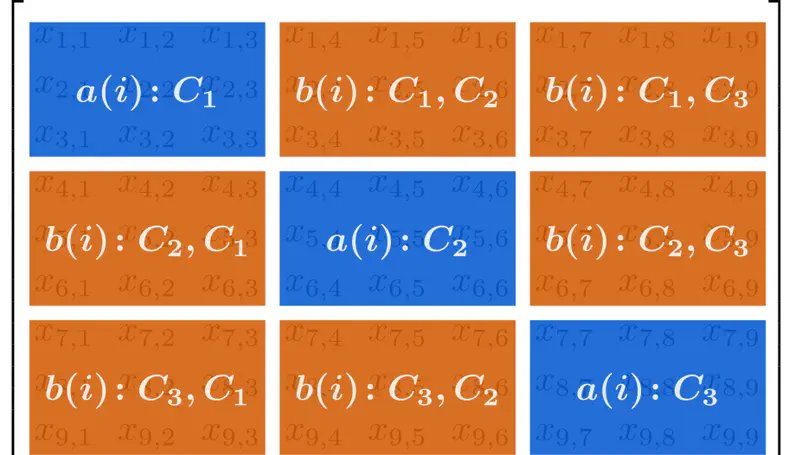Cameron Shand
Research Fellow in Disease Progression Modelling and Machine Learning for Clinical Trials
UCL
Biography
I will soon be moving to the Francis Crick Institute as a ML/Research Software Engineer, where I will continue to work with fantastic people, helping to design, implement, and scale ML in foundational biomedical research.
I am currently a Research Fellow in Disease Progression Modelling and Machine Learning for Clinical Trials in the UCL POND group. Together with Dr Neil Oxtoby, we investigate how (primarily) unsupervised learning can improve the effectiveness of clinical trials (in Alzheimer’s disease) by recruiting the right patients at the right time. For a demonstration of this in action, check out our work applying this to an older phase 3 trial to identify possible subgroup differences, or in the pivotal A4 Study where we investigated the presence of heterogeneity that may affect the trial. The results of the A4 Study will be released later in 2023, making our predictions completely blind.
I was recently awarded an Alan Turing Institute Postdoctoral Enrichment award to spark collaborations on the development and application of multi-view clustering for different neuroimaging modalities, applying this to the Alzheimer’s disease cohorts we have curated from both academia and industry.
My PhD research looked at clustering, particularly within the context of evolutionary algorithms. There I developed HAWKS, an EA for generating synthetic data that challenges and uncovers the (inductive) biases of clustering algorithms, helping to tackle the algorithm selection problem for clustering. It is designed to be (relatively) easy to use and available on PyPI. I’m always happy to hear how it’s been used, so let me know if you do!
During an internship at IBM Research, I had the opportunity to use explainable machine learning to better understand the microbiome and its affect on health. This is a really exciting future avenue of healthcare, so check out the full paper in Scientific Reports if you want to know more.
This simple website summarizes most of my experiences to-date, but leaves a lot out. Please contact me for collaboration, questions, etc.
- Machine learning for healthcare
- Clustering
- Synthetic data generation
- Personalized/precision medicine
- Evolutionary computation
PhD (CDT), 2015-2019
University of Manchester
MEng in Biochemical Engineering with Bioprocess Management, 2010-2015
UCL (University College London)
Experience
(see CV for full details)
- Analysed subgroup treatment effects in multiple Alzheimer’s clinical trials using disease progression models, identifying novel data-driven approaches for patient selection and precision medicine
- Investigated approaches for characterising patient subgroup and disease subtype similarity across multiple data modalities
- Developing novel unsupervised approaches for disease progression modelling with inherent uncertainty estimation
- Awarded ATI Postdoctoral Enrichment Award on multi-view clustering for multiple neuroimaging modalities
- Mentor in A-COMPS outreach scheme for students from disadvantaged backgrounds
- Assumed maintenance and greatly optimized
pySuStaIn, a widely-used model in industry and academia - Created group website and took over organising weekly meetings
- Created internal knowledge resource for using HPC and common workflows
- Regularly present at journal clubs, interest groups, and give seminars within UCL’s Centre for Medical Image Computing (CMIC)
- Created an interactive web application to prototype and investigate our disease progression models
- Won pitch at Race Against Dementia innovation accelerator, and came 2nd in NEUROHACK on dementia prediction problem
Project title: Predicting dysbiosis from metagenomic data using explainable machine learning
- Created pipeline for pre-processing, hyperparameter optimization, training, and subsequent analysis
- Looked at different forms of explainability (from interpretable models to efforts to explain black-box models, such as SHAP)
Project title: Virtuoso
- Analysis of biometric data from professional and amateur violin players
- Involved the cleaning and process of noisy temporal data to assess similarity
Client: BAE Systems
- Invited to workshop organized by BAE Systems
- Helped to work through multitude of problems requiring optimization, machine learning, and traditional analytics
Designed coursework:
- Data Engineering (Master’s)
- Python for Analytics (Master’s)
- Understanding Data and their Environment (Master’s)
Head TA:
- Data Engineering (Master’s)
Taught/marked:
- Foundations of Machine Learning (Master’s)
- Modelling and Visualization of High Dimensional Data (Master’s)
- Fundamentals of Data Analytics (Undergraduate)
- Business Data Analytics (Undergraduate)
